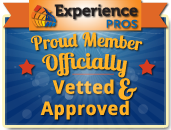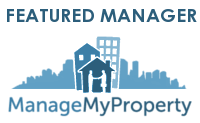Whether you are a homeowner or a landlord or both, you have a tremendous asset in the property you own. And protecting those assets is essential to the goal of increasing value, rather than losing the time and money you have put into the investment of ownership. Just like in the stock market, where you learn a balance in when to buy and sell, protecting the asset that is your property, allows you to keep the most of your money.
- Be Honest
Lying didn’t work for Pinocchio and it won’t work for you.
Protecting your assets, as is everything in life, starts with honesty first. Attempting to hide assets is asking for problems. Full disclosure with your bookkeeper and trusted CPA is the first step in making sure you are covering yourself and fully taking advantage of legal deductions. Basically, without honesty, any advice given by professionals is moot. They simply can’t advise you well, putting you at risk, if you aren’t honest about your assets and goals.
It is also important when setting up insurance to practice full disclosure. If a claim against you were to arise, it is important to know that you are protected, and it can’t protect that which is unknown. Be transparent about your assets so you can have the proper coverage.
- CYA: Cover your assets
No insurance “wardrobe malfunctions”.
Proper coverage with Homeowner and Renter’s Insurance are both very valuable for property owners. Insurance coverage can assist in recovering loss after catastrophes, whether man or nature made. As a landlord, it is important that you are included as a covered insured on the renter’s policy. This is important, for example, if a tenant where to start a kitchen fire. Their assets would be protected, but also the home itself, which is your investment, is also protected.
Liability, business, personal and umbrella policies are all options to be considered when shopping for proper insurance coverage.
- Keep your hands out of the cookie jar
Don’t make business personal and visa versa
Business entities are meant to be for business, not be a second “checkbook” for personal use. Be sure to keep any assets designed for business, separate than personal ones. Protect your personal assets in a trust and use the expertise of your CPA to help with your business entity and the ways to properly administer the funds.
Using a property manager to work with your tenants and direct the relationship with the tenants is one way to keep it objective. If we were to invest in something we had an emotional tie to, we may not make the best decisions, especially the more difficult, complicated or expensive they are. For example, giving $1 to a kid with a lemonade stand because it brings back the nostalgia of your younger entrepreneurial days, is easy.
However, choosing to rent your home to Cousin Lou when he lost his job, but has another lined up and just “needs a break” to make it through, is much more difficult. Especially when you need to show up to Christmas and look his children in the eyes.
Be rich in mind and pocket
“A successful team is a group of many hands but of one mind” ~ Bill Bethel
As your assets grow, it is becomes even more important to build a good team of trusted professionals around you. A certified financial planner can help you with tax savings options such as IRA’s. Talk to them about your unique situation. A CPA is valuable for getting the right deductions and directing you in giving of gifts, whether to family, charity or more. A property manager can make sure your return on investment is hitting the goal you established by retaining quality tenants, eliminating bad ones, maximizing the rent value and saving you money with quality contractors.
At the end of the day, it comes to scalability. Can you continue to expand your assets? What is the best way to do that? Who do you need to surround yourself to support that?
Fill out the form below or call 720 989 1996 and let’s have a conversation about your property in Colorado and your assets.
Have a question? Ask us anything.
[gravityform id=”4″ title=”false” description=”false”]



